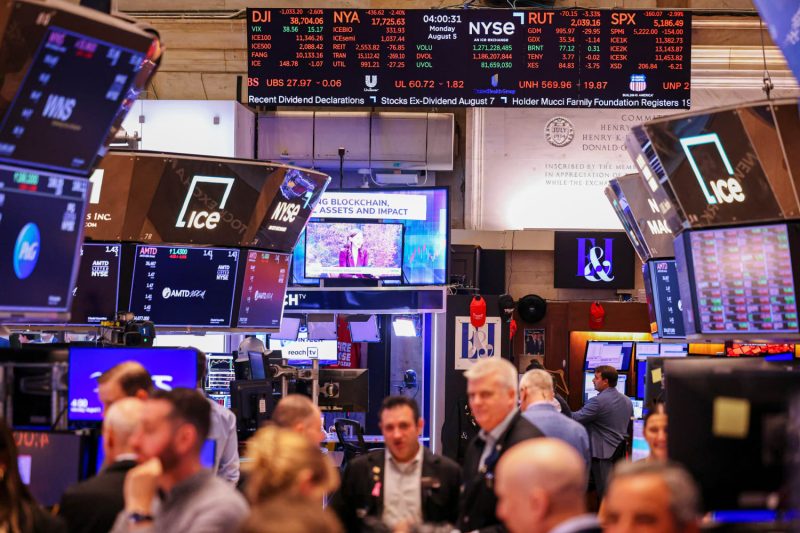Stocks Fall as Comeback Rally Falters; Dow Lower by 100 Points
The stock market experienced a downturn today as the previously impressive comeback rally faltered, with the Dow Jones Industrial Average dropping by 100 points. This decline marks a shift in sentiment among investors after a period of strong performance in the market. Various factors contributed to the drop in stock prices, including concerns about rising inflation and uncertainty surrounding the pace of economic recovery.
One of the primary drivers behind the market’s decline was the growing apprehension regarding inflation. As consumer prices continue to rise, investors worry about the impact of inflation on corporate earnings and consumer spending. This concern was further exacerbated by the Federal Reserve’s recent signaling of a potential interest rate hike to curb inflation. The prospect of higher borrowing costs also weighed on the market, dampening investor sentiment.
Moreover, uncertainty surrounding the pace of economic recovery added to the negative sentiment in the market. While the economy has shown signs of improvement in recent months, questions remain about the durability of the recovery, especially in the face of ongoing challenges such as supply chain disruptions and labor shortages. These uncertainties have led investors to adopt a more cautious approach, pulling back on their investments and contributing to the downward trend in stock prices.
Another contributing factor to the market downturn was the resurgence of COVID-19 cases in certain regions, reigniting fears of potential lockdowns and restrictions that could stifle economic growth. The renewed concerns about the pandemic’s impact on businesses and consumer behavior served as a reminder of the lingering risks posed by the virus, adding to the overall sense of unease in the market.
In response to the market decline, investors have been reevaluating their investment strategies and seeking to diversify their portfolios to mitigate risk. Many have turned to defensive sectors such as utilities and consumer staples, which are perceived as more resilient during periods of market volatility. Additionally, some investors have opted to trim their exposure to high-risk assets and reallocate funds to safer havens, such as government bonds or gold, to protect their portfolios against further downside risk.
Looking ahead, the market is likely to remain volatile as investors navigate the uncertainties surrounding inflation, economic recovery, and the evolving COVID-19 situation. It is crucial for investors to stay informed, exercise caution, and maintain a long-term perspective when making investment decisions in such turbulent times. While market downturns are an inevitable part of investing, they also present opportunities for investors to reposition their portfolios and capitalize on potential bargains that emerge amidst the volatility.
